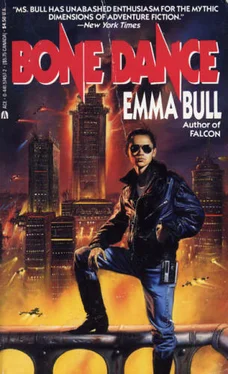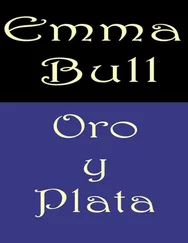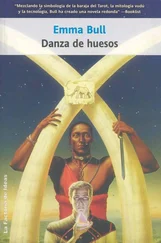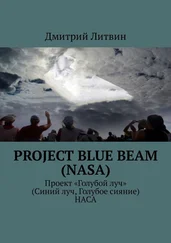I didn’t think I could. Whatever message the needle delivered, my body was saying, Let go.
For a few minutes, I might have. Then I was standing, supporting myself against the window frame. At last, I saw the Gilded West. It was the skull side, a little irregular where a few of the floods had failed to light. It was gilded, the fantasy palace of the postcards, the monument of Frances’s childhood and the hoodoo work of Sherrea’s gods all at once. A bridge between the old world and the new.
A bridge between the earth and sky. Hanging twisting and quivering from the clouds above, its pointed foot dancing delicately just out of sight on the other side of the building, was a howling cone of wind. Oya danced before my eyes, and I understood, looking at her, why change, in the cards, was called Death.
Josh and LeRoy were at work, supplementing the light with a pair of battery lamps. I couldn’t see Frances. I moved, slowly, toward the office door, the one I’d come in through.
Wet hands closed around my face and lifted it, and Theo said,
“Where is he?”
It was Theo. That was why I’d needed to keep going: to find Theo. His thick brown hair was streaked with rain and curling on his face and neck, his glasses were spattered with droplets, and he smelled strongly of burning cable insulation. I sighed and shut my eyes.
Theo shook me, very hard, and said, “Sparrow, where is he?”
His voice was raw.
I opened my eyes again. Theo’s face was laced through with horror, an expression so different from any I’d seen him wear that it almost made a stranger of him. I turned to find the cause of it, back the way I had come.
It was there. It must have been the same thing that had hardened Josh’s features and words, and made LeRoy’s hands shake. I had known it was there, and with unnatural camera angles and restricted depth of field kept myself from having to see it all.
The room was washed in the pale golden light that Theo had turned on, cast by the Gilded West: Death, the patron of change, the destroyer of the established order, looked in the window. What had been terrible in the dark was unbearable now. There had been change enough in that room to wake me up screaming for the rest of my life.
Theo shook me again, and I dragged my eyes away from Dana, from Mick, from the huddle of people who were trying to keep Frances from following the same route. “Sparrow!” Theo said. “ Where’s my dad? ”
“I don’t know. He wasn’t here when…”
LeRoy’s booster shot kicked in at last, and I could think again. It was a bad time for it. You know my business, she had said. I did. The Hoodoo Engineers had called her, Mr. Lyle and China Black and all the people who knew it was time and past time for change had called her, to break the stagnant hold of Ego on the City. The hold of A. A. Albrecht. She, in turn, had called me.
Not Legba the gatekeeper, male and female, to whom I was supposed to belong; it was Oya Iansa who’d come in with the light from the Gilded West, the goddess who brought revolution and the falling of towers. Oh, of course I was hers, not Legba’s. Out of all the things in that bunker, she’d preserved and awakened the one with the technical knowledge she wanted. I wasn’t a practical joke; I was the whirlwind.
And my friend’s father had been standing in the path of it.
10.2. Mister Death and the redheaded woman
“I have to find him.” Theo turned back to the office door.
“You said once… that you didn’t like him.”
Theo looked over his shoulder at me. The answer was in his face: that if I had been born instead of grown, I wouldn’t have said that.
I followed him out into the dark hallway. I couldn’t do anything about Frances. But I would not lose Theo.
“Where are we going?” I whispered.
“He has a bedroom one floor down.”
If this had been a movie, he would have said, “ We’re not going anywhere.” I was glad it wasn’t. “Did—do you live here?”
“Not for years. I moved out a little after my mom died.” Tom had been honest about the illumination in the stairwell. Theo pulled a candle out of a jacket pocket and lit it, and we started down in that narrow field of jittery light. “I visited, though. Mostly to fight with him. And I always thought I hated that, but I kept coming back. I guess it was better than not seeing him.”
The candlelight offered emotional armor that even darkness couldn’t have provided. “Do you… do you love him?” I said.
“He’s my father.”
“Does that mean you love him?”
“It means I can’t tell,” said Theo.
The power was working on the floor below, and the stairwell door was unlocked. Theo opened it a crack and light blasted out, followed by a rush of slightly cooler air. He blew out the candle. When our eyes had adjusted, we stepped into the hall.
“Theo!” I whispered suddenly. It sounded like escaping steam in the silence. “Was there a guard on the front door?”
“No.”
“Didn’t you wonder why not?”
“I still wonder why not, man. Maybe he went to check out the tornado. You want to stand here ‘til he shows up?”
“I should have brought a gun from upstairs,” I muttered. “There’s got to be a guard someplace.”
Theo shrugged. “Neither of us knows from guns.”
“You can’t tell that from looking at us.”
He gave me an encompassing stare. “Right now you wouldn’t scare me if you had a cannon.”
He was right, of course. I was suddenly aware of myself in every undignified detail: smeared with blood, soaked with sweat, blinkered with tangles of hair. And half-dressed besides. LeRoy had used a lot more bandage than he’d had to, but I felt the skin on my shoulders, arms, and stomach cooling as the sweat dried, and shivered more than was called for. I found I couldn’t meet Theo’s eyes.
But Theo’s mind was elsewhere. “We gotta do this on attitude,” he continued. “Think Mel Gibson in Monte Cristo .”
“Sure. Could we also do it on paranoid willingness to hit anything that moves with the nearest heavy object?”
“I’ve got no problem with that.”
Theo, my patron saint may have killed your father. If so, I made it possible. I didn’t say it. It wouldn’t have helped.
Theo stopped halfway down the hall and set his hand on a doorknob. He glanced up at me; for a moment I thought he’d speak. Then the moment was gone, and he opened the door.
There was a lamp lit on the nightstand, and a bulky figure on the bed; there was the sound of harsh, irregular breathing. It was Albrecht, gray-skinned, slack-mouthed, aged by ten years, sick. But alive. Theo hunched over the bed as if looking for some microscopic, encouraging signal.
I couldn’t find any resemblance between Theo and his father. Maybe he looked like his mother. That would be interesting, to be able to see your nose on someone else’s face, and know it was only the outward sign of an interior connection, a similarity in the blood. And the emotional connection: Was it different from friendship? What did Theo feel now? Would I feel the same, if it were Theo lying stricken on the bedspread?
I heard something click to my right and looked up. Dusty, my nemesis from the Night Fair and the Underbridge, stood in the connecting door to the next room. He wore a knee-length black robe that was too big around for him, and his shell-pink hair was in disarray. I’d never seen him without the silvertones; his eyes were narrow and deep-set and very dark. He held a long-barreled pistol in both hands. “Hey,” he said, “it’s Sonnyboy and the Whatchacallit.”
I stood very still at the foot of the bed. LeRoy’s injection and a bolt of fear combined to make a buzzing noise in my head. I waited for a sign from heaven.
Читать дальше












